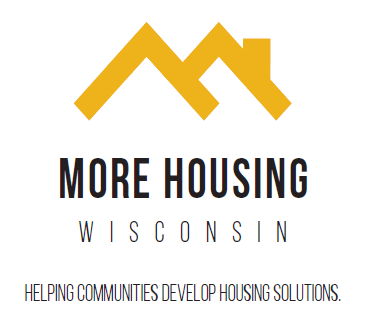More Housing Wisconsin
Wisconsin is experiencing a significant housing shortage. A recent study estimates Wisconsin will need to build over 200,000 housing units by 2030 to accommodate all the people who want to live and work here. More Housing Wisconsin, a collaboration between the League of Wisconsin Municipalities, Wisconsin Realtors Association, and the Wisconsin Builders Association, seeks to educate and inform Wisconsin city and village leaders and staff about zoning changes and other strategies communities can use to help address this state’s housing shortage. Our goal is to bring tools, resources, and best practices to municipalities to help communities initiate housing solutions that meet their unique needs and strengthen our economy.
What Local Governments Must Do to Participate in WHEDA’s Workforce and Senior Housing Low Interest Loan Programs
Eligibility requirements local governments must meet to enable developers to access WHEDA’s workforce and senior housing low-interest loan programs. Explains the requirements a local government must meet to enable developers of workforce and senior housing projects within the community to qualify for the Infrastructure Access, Vacancy to Vitality, or Restore Mainstreet low-interest loan programs administered by WHEDA.
Neutralizing NIMBYism and building public support for workforce housing
The eleventh More Housing Wisconsin briefing paper, provides information and resources to help municipalities build public support for workforce housing and address NIMBY reactions and neighborhood opposition to zoning reform allowing increases in density and the location of multi-family housing projects in residential neighborhoods.
Using Publicly Owned Land and Partnering with nonprofits to create more housing
The tenth More Housing Wisconsin briefing paper focuses on using publicly owned land for workforce housing and partnering with nonprofit organizations to create more housing options.
Using the TID Affordable Housing Extention to Fund Municipal Housing Initiatives
The ninth More Housing Wisconsin briefing paper focuses on using the TIF affordable housing extension option to help fund municipal efforts to expand workforce housing in the community.
Public-Private Housing Solutions
Ways municipalities can work with local employers to address workforce housing needs.
Understanding the Cost of Developing a Buildable Lot
Developing a new housing subdivision is complex and costly. Many of the costs are beyond the control of both developers and local governments. However, allowable density, locally imposed engineering standards, and municipal fees can combine to make an already risky business venture unfeasible. A better understanding of the actual costs of developing a subdivision can serve as an important guide for creating local policies that encourage, rather than discourage, new home construction.
Streamline standard development approval process and create expedited review for workforce housing
This sixth paper describes ways communities can simplify and streamline the development approval process by, for example, expanding administrative reviews and reducing governing body approvals. Learn why changing the development approval process may be one of the most important actions communities can take to remove barriers to the creation of more housing.
Supporting Infill Housing by Enabling Missing Middle and Accessory Dwelling Units
The fifth briefing paper explores supporting infill development by allowing missing middle housing and accessory dwelling units in residential zoning districts. Learn how your community can adjust its zoning code and other regulations to increase housing choices in existing and new neighborhoods that are more affordable to various income levels.
Interview with Washington County Executive Josh Schoemann
reduce minimum lot and dwelling unit size restrictions
The fourth briefing paper exploring one of the “biggest little changes” you can make to improve housing options and affordability in your community -- strategically modifying lot size, lot coverage, and setback standards to allow for a broader variety of residential unit sizes and types to provide lower cost and smaller footprint housing.
Interview with City of Madison Zoning Administrator
laying the foundation for informed housing policy decisions
This third edition reviews the root causes of the housing shortage and the related housing unaffordability crises. It also defines key terms like affordable housing, attainable housing, workforce housing, missing middle housing, and subsidized housing.
Interview with Professor Kurt Paulsen
first steps to housing solutions
The second in a series of our briefing papers, focuses on first steps to housing solutions. This briefing paper covers ways a community can lay the groundwork for taking actions to improve its housing situation by first assessing its housing needs and then developing a local housing strategy.
Interview with Professor Emeritus Brian Ohm, UW-Madison Planning & Development
Housing checklist for municipalities
This first briefing paper released by More Housing Wisconsin is a Housing Ready Checklist, which is a tool to help municipal officials and staff review and evaluate their zoning and subdivision regulations, land use plans, permitting process and fees, communications with developers, use of tax incremental financing, and other policies and procedures related to housing to ensure they are aligned toward the goal of creating more workforce housing for the community.
Interview with Ripon City Administrator, Adam Sonntag

